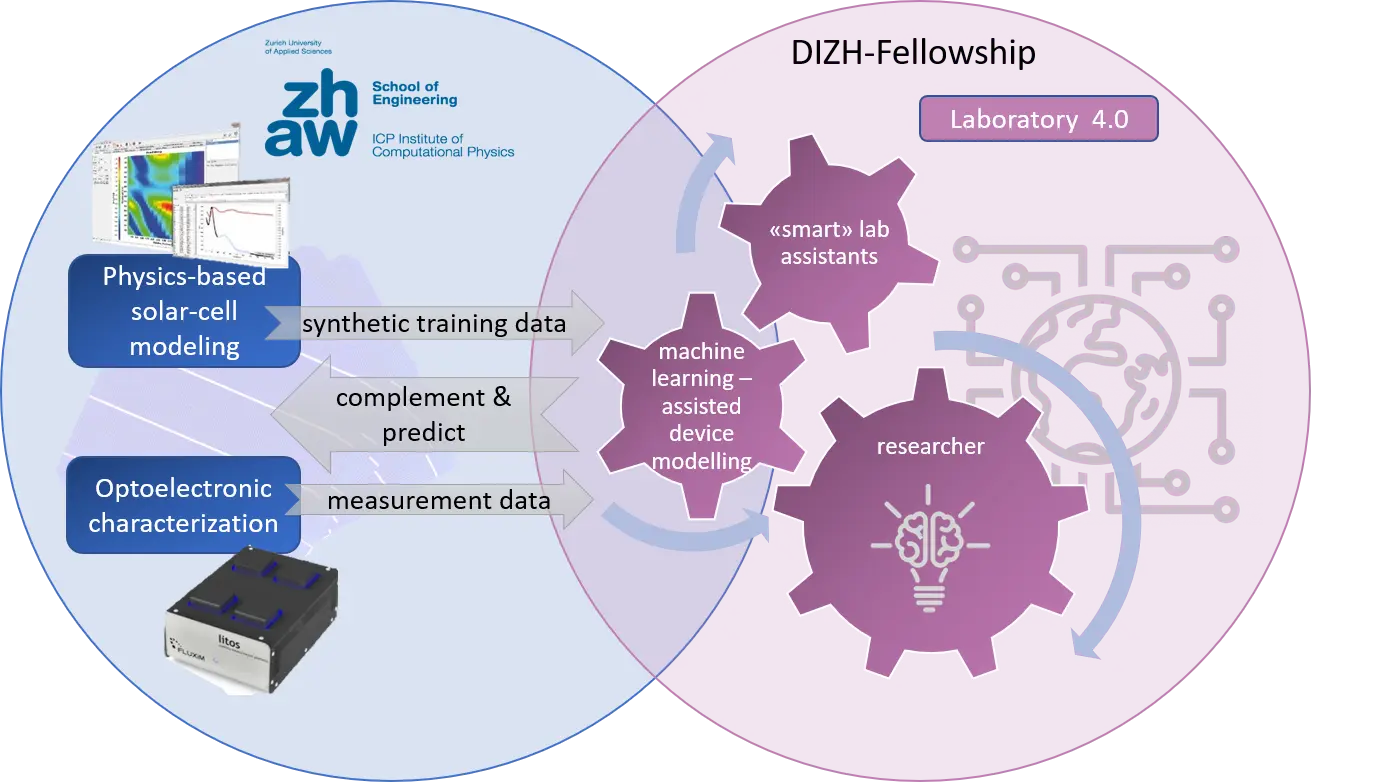Laboratory 4.0 – Digitization in applied materials research
Description
Whereas digitization has penetrated the business world and thanks to the smartphone our every-day life, students and researchers starting in a lab receive a paper notebook with their lab coat. On the one hand, this might look outdated, on the other hand, one might ask the question whether digital assistance is beneficial in the process of inventing and creating, actions that are supposed to remain for the human brain. In this field of conflict, the DIZH project aims to analyze the benefits and challenges of a digital transformation of labs (“Lab 4.0”), including aspects of ML and AI. The DIZH project isdesigned to accompany the major research activities in our lab, where we are performing cutting-edge studies on novel semiconductors for new generations of light-emitting diodes, solar cells, and memristive devices. (The latter might becomeimportant for future neuromorphic computing, a further link to AI.) We are a growing group and highly connected in the global research world. We exchange samples and data globally and collaborate with industrial partners (Fluxim). Our research combines experiment and simulation, more specifically optoelectronic characterization of solar cellsand similar devices with numerical device simulations. These points make our lab an ideal candidate for a case study on the Lab 4.0 with two major goals:1st, addressing a specific scientific problem in our lab, i.e. assessing how ML-based approaches can complement our physical device models by facilitating the determination of material and device parameters;2nd, evaluating the broad benefits of Lab 4.0 accelerating developments in materials science facilitated by feedback loops between machines fabricating, characterizing, modeling, analyzing, and re-designing materials and devices.
Key Data
Projectlead
Deputy Projectlead
Project status
completed, 09/2021 - 08/2023
Institute/Centre
Institute of Computational Physics (ICP)
Funding partner
Kanton Zürich / Digitalisierungsinitiative DIZH
Project budget
179'088 CHF

